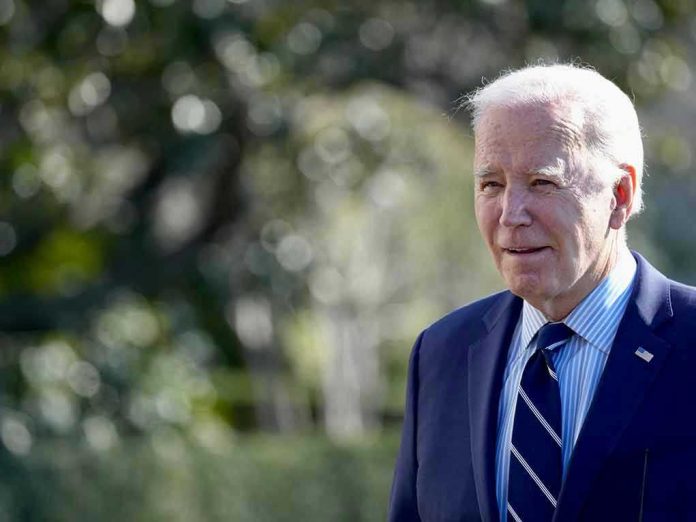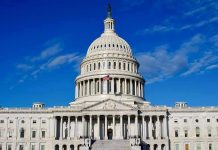
When a former president warns that the nation is teetering on the edge of a “very, very dark moment,” you know the stakes for American democracy have never felt higher—yet the real drama is just beginning to unfold.
Story Snapshot
- Biden publicly denounces what he calls rising authoritarianism under Trump, urging Americans to protect democracy.
- Media censorship and backlash against critics heighten anxieties about free speech and democratic norms.
- Economic woes, especially inflation and affordability, remain Trump’s central counter-narrative.
- Political polarization and mistrust in institutions deepen as both sides escalate their rhetoric.
Biden’s Stark Warning: Democracy at a Crossroads
Joe Biden’s latest speech on October 26, 2025, did not mince words. He called the current political climate “a very, very dark moment,” directly blaming Donald Trump’s leadership for stoking division and threatening the foundational norms of American democracy. Biden’s warning was more than rhetorical flourish—it was a rallying cry for vigilance. He highlighted recent incidents where critics, especially late-night talk show hosts like Jimmy Kimmel, faced suspensions and public backlash for lampooning Trump. The subtext was clear: free speech, one of America’s oldest liberties, is newly vulnerable.
Biden’s framing of the moment as an existential threat to democracy resonated with those who see in recent media crackdowns the shadow of authoritarianism. He urged Americans to remain engaged, warning that complacency could allow the erosion of institutions that ensure liberty and debate. This rhetoric, while dramatic, reflects genuine anxiety among many observers who see a pattern: as political power consolidates, dissenting voices face increasing pressure to fall in line.
Free Speech on the Firing Line: Media, Comedy, and Political Retaliation
Late-night television has become a flashpoint in the larger debate over free speech. In September 2025, several prominent hosts, including Jimmy Kimmel, found themselves temporarily suspended after criticizing President Trump. The suspensions sparked fierce debates about the limits of satire and the consequences of speaking truth to power. For many, these incidents were not isolated but part of a broader trend of media suppression that echoes historical precedents of political retaliation against critics.
The White House under Trump has maintained a hard line, defending actions against media figures as necessary to combat what it calls “unfair attacks” and misinformation. Trump’s administration, meanwhile, continues to shape the national conversation by emphasizing economic issues—particularly inflation and affordability—diverting attention from allegations of censorship. This dual strategy of controlling the narrative while challenging critics has only deepened polarization, with each side accusing the other of undermining democracy.
Pocketbook vs. Principles: The Rhetorical Arms Race
While Biden frames the moment as a battle for the soul of democracy, Trump counters by focusing relentlessly on economic pain points. Inflation, cost of living, and affordability dominate his messaging, as he seeks to convince a skeptical public that his administration alone can restore prosperity. Trump’s allies argue that economic recovery trumps concerns over rhetoric, insisting that criticisms of authoritarianism are exaggerated or politically motivated.
Joe Biden warns of a 'very, very dark moment' as he hits out at Trumphttps://t.co/Wew6jh4p2w
— Economic Times (@EconomicTimes) November 9, 2025
The clash is more than ideological—it’s a contest for what matters most to Americans. For some, the threat to democracy is paramount; for others, day-to-day economic struggles overshadow abstract debates about free speech. The result is a national conversation where facts are contested, motivations are suspect, and trust in institutions has rarely been lower. As both camps harden their positions, the center ground shrinks, and the prospect of reconciliation grows ever more distant.
What Happens Next: Stakes for Institutions, Media, and the American Public
The implications of this standoff are profound and far-reaching. In the short term, Biden’s warning has galvanized supporters who fear the erosion of democratic norms, while Trump’s base remains fiercely loyal, buoyed by economic arguments and skepticism of media narratives. The ongoing incidents of censorship and political retaliation threaten to chill open debate, raising the specter of self-censorship among journalists, comedians, and everyday citizens alike.
Long-term, the risk is that the current climate sets a precedent for future administrations, normalizing the use of executive power to silence dissent. The media industry, already under economic and political pressure, faces fresh challenges to its credibility and independence. Meanwhile, the general public—caught between competing narratives of crisis and recovery—must navigate an environment where polarization is the norm and truth itself can feel elusive. The coming months will test whether American democracy’s vaunted resilience is enough to weather this storm, or whether Biden’s warning of a “very, very dark moment” will become a self-fulfilling prophecy.












